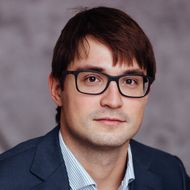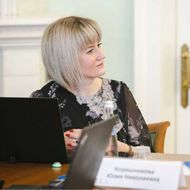Project Team of ‘Success and Self-Sustainability of the Individual in a Changing World’ Wins Russian Science Foundation Grant

Researchers from HSE University will receive funding from the Russian Science Foundation to study such forms of student employment as freelancing, self-employment, and entrepreneurship, all of which have been actively developing in recent years. The research will shed light on the new opportunities and challenges encountered by students and early-career specialists in the labour market. It will also aid in the development of effective strategies for their successful adaptation and development.
Changes in the world and the labour market mean that early-career specialists need have new skills, such as the ability to act without specific instructions and to make decisions independently. These competencies are grouped under terms such as ‘agency’, ‘independence’, ‘proactivity’, ‘initiative’, ‘entrepreneurial spirit’, etc, and are widely studied in Russia and abroad.
The increased focus on this topic is the result of changes in the economy and society, a phenomenon sometimes referred to in sociology circles as ‘destructuring’. In the labour market, this manifests as a growth in the popularity of alternative forms of work alongside traditional corporate employment. These alternative forms include platform work, freelancing, entrepreneurship, etc. In addition, so-called ‘corporate entrepreneurship’ is increasingly sought after in organisations.
However, scientists and practitioners do not fully agree on which qualities a person should have in order to be successful in new employment circumstances, nor how to develop these qualities.

In order to address these challenges, researchers from HSE University will study the trajectories of students and graduates of higher education in new social and economic conditions, assess the role of education in forming and supporting non-traditional forms of employment, and examine the characteristics that contribute to productive forms of agency. All of this will be done as part of the strategic project 'Success and Self-Sustainability of the Individual in a Changing World' implemented as part of the Priority 2030 programme.

Head of the Laboratory for Human Capital and Education Research at the HSE University Institute of Education and head of the research project
‘Research into non-traditional forms of employment among students has major significance in modern society, where technology—and digitalisation especially—is changing the traditional models of business processes. The results of this research can shed some light on new the new opportunities and challenges facing students and early-career specialists, as well as help to develop effective strategies for their successful adaptation and development. I am confident that this research will produce valuable theoretical and practical results.’
Yulia Koreshnikova, supervisor of the strategic project 'Success and Self-Sustainability of the Individual in a Changing World', explains that the researchers have set themselves a range of tasks, including testing theoretical models for describing the work paths of students, identifying the most common types of non-traditional employment, and assessing important competencies in freelancing, self-employment, and entrepreneurship for early-career specialists. The second group of tasks is related to determining the role of higher education in the formation of sought-after skills in new conditions, with the goal of determining which organisational and teaching conditions must be created to train students in higher education.

Supervisor of the strategic project 'Success and Self-Sustainability of the Individual in a Changing World'
‘Our project will help to systematise knowledge of non-traditional formats of employment and the higher education-related needs of employers, employees, and future businesspeople. We will also determine how universities can meet this challenge.’
The members of the research group headed by Pavel Sorokin are: Vera Maltseva, Yulia Koreshnikova, Natalia Shirkova, Alexandr Timofeev, Darya Pavlyuk, Timofey Redko, and Yulia Vyatskaya.
See also:
HSE University and National Academy of Sciences of Kazakhstan Agree on Cooperation
In early February, HSE University's campus on Pokrovsky Bulvar hosted a meeting between HSE Vice Rector Victoria Panova and Abay Serikkanov, Vice President of the National Academy of Sciences of the Republic of Kazakhstan. The parties explored potential areas of cooperation and concluded the meeting by signing a memorandum of intent.
HSE University among Top Universities in Digital Economy
HSE University took second place in the new 2023 ranking of universities in the digital economy in Moscow and St Petersburg, having lost only to Bauman Moscow State Technical University. HSE University outperformed specialised IT universities such as Moscow Institute of Physics and Technology (third place) and ITMO University (fifth place), as well as Moscow State University (fourth place).
‘Our Beloved University Continues to Stride Forward with Unwavering Confidence’
HSE Rector Nikita Anisimov has congratulated university students, teachers, and staff on the upcoming New Year. ‘May each and every one of you spend these festive days in a heartwarming atmosphere, rejuvenating and reuniting with your families. I hope that the upcoming 2024 is filled with positive events in your lives, studies, and careers,’ he said.
‘University Life in Partnership with Artificial Intelligence’
HSE University is one of the leaders in IT education and research in the field of artificial intelligence (AI). Thanks to this, the university recently received the highest grant of the Priority 2030 programme. The integration of AI technologies into education is set to become a strategic direction for the university’s development over the next five years. What changes are coming to HSE University in this regard and how they will affect students and teachers? These issues were discussed at a meeting of HSE University’s Academic Council on December 20.
'While it May Sound Futuristic, It Holds Great Promise': Olga Dragoy Shares Her Thoughts on Language Function Restoration and the Future of Neurotechnology
In the spring of 2023, the fifth strategic project of the Priority 2030 programme, 'Human Brain Resilience: Neurocognitive Technologies for Adaptation, Learning, Development and Rehabilitation in a Changing Environment,' was launched at HSE University. The strategic project brings together researchers from all campuses of HSE University. In her interview with the HSE News Service, Olga Dragoy, head of the strategic project and Director of the HSE Centre for Language and Brain, shares an overview of the advanced technologies neuroscientists are creating today, the underlying inspiration driving these efforts, and the operational dynamics of interdisciplinary applied projects.
HSE University Receives Highest Grant under Priority 2030 Programme
HSE University has proved its leading position in the first group of the ‘Research Leadership’ field under the Priority 2030 programme. The university has also received the highest grant for teaching digital competencies to students, demonstrating its educational leadership in the fields of digital technologies and AI.
HSE Launches English-Language Strategic Development Website
The new website makes information on the university’s strategic development initiatives and opportunities available to international colleagues and partners. The Strategic Development Programme Office has launched anEnglish-language website to promote the implementation of HSE University’s integrated development programme. The website is an ‘entry point’ for international partners and students, informing them about the university’s strategic priorities, goals, and plans.
‘It Was Great to Look at Scientific Achievements through the Eyes of a Journalist, not a Scientist’
HSE University in Nizhny recently hosted the 2nd Autumn Neuro-linguistic School ‘NeuroSciCom: Popularising Language and Brain Studies’ for scientists and students at the HSE Centre for Language and Brain Studies in Nizhny Novgorod. The school was held as part of the 'Human Brain Resilience: Neurocognitive Technologies for Adaptation, Learning, Development and Rehabilitation in a Changing Environment' Strategic Project of the Priority 2030 programme.
Card Index: 'Success and Self-Sustainability of the Individual in a Changing World'
To achieve success and well-being, a modern person needs to keep up with ongoing social, economic, technological and cultural changes. However, in order to adapt to these, you need to be competent, healthy and active, develop cognitive abilities, acquire new skills and maintain friendships. All of this can expand people’s capabilities, revealing their potential. The HSE's unique multidisciplinary strategic project 'Success and Self-Sustainability of the Individual in a Changing World', which brings together educators, sociologists, psychologists, economists, biologists, physicians and digital technology specialists, helps to solve some of these tasks. Working together, they have managed to create a navigation system to improve human achievements for the benefit of the whole of society.
HSE in India: ‘Cooperation Is Formed by the Development of Live Communication Between People’
HSE University is taking part in the Annual International Conference and Global Summit (AICGS-2023), which began in Phagwara, India, on October 30. This year’s topic of discussion was the new model of international cooperation in the field of sustainable development, as well as the prospects and global challenges faced by universities in the development of international ties today.


